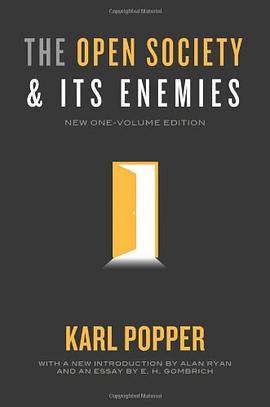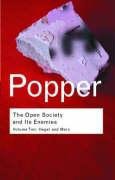The Open Society and Its Enemies
豆瓣
Karl Raimund Popper
简介
One of the most important books of the twentieth century, Karl Popper's The Open Society and Its Enemies is an uncompromising defense of liberal democracy and a powerful attack on the intellectual origins of totalitarianism. Popper was born in 1902 to a Viennese family of Jewish origin. He taught in Austria until 1937, when he emigrated to New Zealand in anticipation of the Nazi annexation of Austria the following year, and he settled in England in 1949. Before the annexation, Popper had written mainly about the philosophy of science, but from 1938 until the end of the Second World War he focused his energies on political philosophy, seeking to diagnose the intellectual origins of German and Soviet totalitarianism. The Open Society and Its Enemies was the result.
An immediate sensation when it was first published in two volumes in 1945, Popper's monumental achievement has attained legendary status on both the Left and Right and is credited with inspiring anticommunist dissidents during the Cold War. Arguing that the spirit of free, critical inquiry that governs scientific investigation should also apply to politics, Popper traces the roots of an opposite, authoritarian tendency to a tradition represented by Plato, Marx, and Hegel.
In a substantial new introduction written for this edition, acclaimed political philosopher Alan Ryan puts Popper's landmark work in biographical, intellectual, and historical context. Also included is a personal essay by eminent art historian E. H. Gombrich, in which he recounts the story of the book's eventual publication despite numerous rejections and wartime deprivations.
其它版本
-
 開放社會及其敵人 商周出版 2020
開放社會及其敵人 商周出版 2020 -
 The Open Society and Its Enemies Princeton University Press 2020
The Open Society and Its Enemies Princeton University Press 2020 -
 The Open Society and Its Enemies Routledge 2011
The Open Society and Its Enemies Routledge 2011 -
 The Open Society and its Enemies, Volume II Routledge 2002
The Open Society and its Enemies, Volume II Routledge 2002 -
 The Open Society and its Enemies, Volume I Routledge 2002
The Open Society and its Enemies, Volume I Routledge 2002 -
 开放社会及其敌人(全二卷) 中国社会科学出版社 1999
开放社会及其敌人(全二卷) 中国社会科学出版社 1999 -
 開放社會及其敵人(全二冊) 桂冠圖書股份有限公司 1992
開放社會及其敵人(全二冊) 桂冠圖書股份有限公司 1992